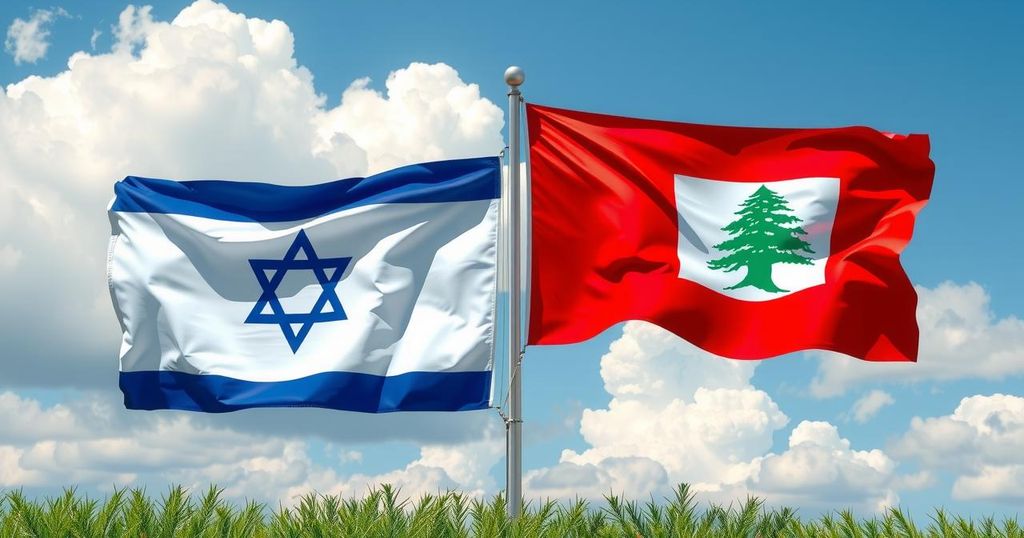Israel’s Strategic Push for Normalization with Lebanon Amid Regional Instabilities
Israel is focusing on normalizing relations with Lebanon after weakening Hezbollah during recent conflicts. Diplomatic talks are underway to resolve border disputes and ensure the release of prisoners. However, Hezbollah’s potential opposition and long-standing Lebanese historical stances complicate the prospects for normalization. Overall, the future of peace in the region is also contingent on addressing the broader Israeli-Palestinian conflict.
Israel has prioritized normalizing relations with Lebanon, particularly after diminishing the influence of Iran-aligned Hezbollah following a significant military engagement. Analysts contend that this renewed focus raises questions about the practicality of such normalization, as Lebanon historically maintains a stance to be the final Arab state to forge peace with Israel.
Recent diplomatic interactions between the United States, Lebanon, and Israel are centered around various issues, including the repatriation of Lebanese detainees and resolution of territorial disputes. The U.S. and France brokered a cease-fire on November 27, which halted the Israel-Hezbollah conflict. Thirteen disputed border points, established along the UN’s Blue Line since 2000, remain contentious.
An immediate outcome of renewed diplomatic dialogue was the release of five Lebanese individuals, including an army member, seized by Israeli forces during the ongoing conflict. A Lebanese source indicated that additional civilian releases are anticipated, asserting the desire for all prisoners to return home, as negotiations proceed under the auspices of a five-nation military committee overseeing the 2006 ceasefire agreement.
The monitoring committee, co-chaired by the U.S. and France, is tasked specifically with addressing Lebanon’s request for Israel’s withdrawal from critical positions and resolving border disputes. However, Israeli Defense Minister Israel Katz has noted that Israeli forces will continue to occupy specific sites indefinitely, despite ongoing negotiations aimed at addressing the border conflict.
Retired Lebanese Brigadier General Hassan Jouni argued against negotiating the strategic positions, asserting that they should have been vacated upon Israel’s withdrawal. He emphasized that Israel intends to leverage its regional advancements for negotiations that benefit its political goals, even amidst Lebanon’s precarious status.
The nature of Lebanon’s potential normalization with Israel remains contentious, with officials suggesting that such discussions have not yet emerged. Professor Hilal Khashan from the American University of Beirut pointed out that U.S. mediation signifies Israel’s willingness to push towards a peace treaty, despite no assurances from Lebanon.
Israel continues to exert pressure on Hezbollah, targeting its operational capabilities and leadership, while Hezbollah’s weakened stance amid internal opposition may limit its ability to resist normalization with Israel. The Lebanese government has reaffirmed adherence to UN Resolution 1701, which limits Hezbollah’s military activities.
The resolution of border disputes is crucial in diminishing Hezbollah’s justification for resistance against Israel, and analysts speculate on whether normalization of relations between Israel and other Arab states, particularly Saudi Arabia, may materialize in the future. Khashan suggested that Saudi Arabia aims to negotiate a peace framework that could eventually lead to Palestinian statehood, although skepticism remains regarding the success of such efforts.
In summation, Israel’s initiative to normalize ties with Lebanon reflects a strategic move following the weakening of Hezbollah. The ongoing diplomatic talks, primarily mediated by the U.S. and France, aim to resolve significant disputed issues, including prisoner exchanges and border disputes. However, the complexities surrounding these negotiations, along with Hezbollah’s current vulnerability and Lebanon’s historical position against normalization, present significant challenges ahead. The prospects for broader peace in the region appear intricately tied to the resolution of longstanding conflicts, particularly the Israeli-Palestinian issue.
Original Source: www.upi.com




Post Comment